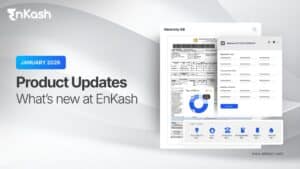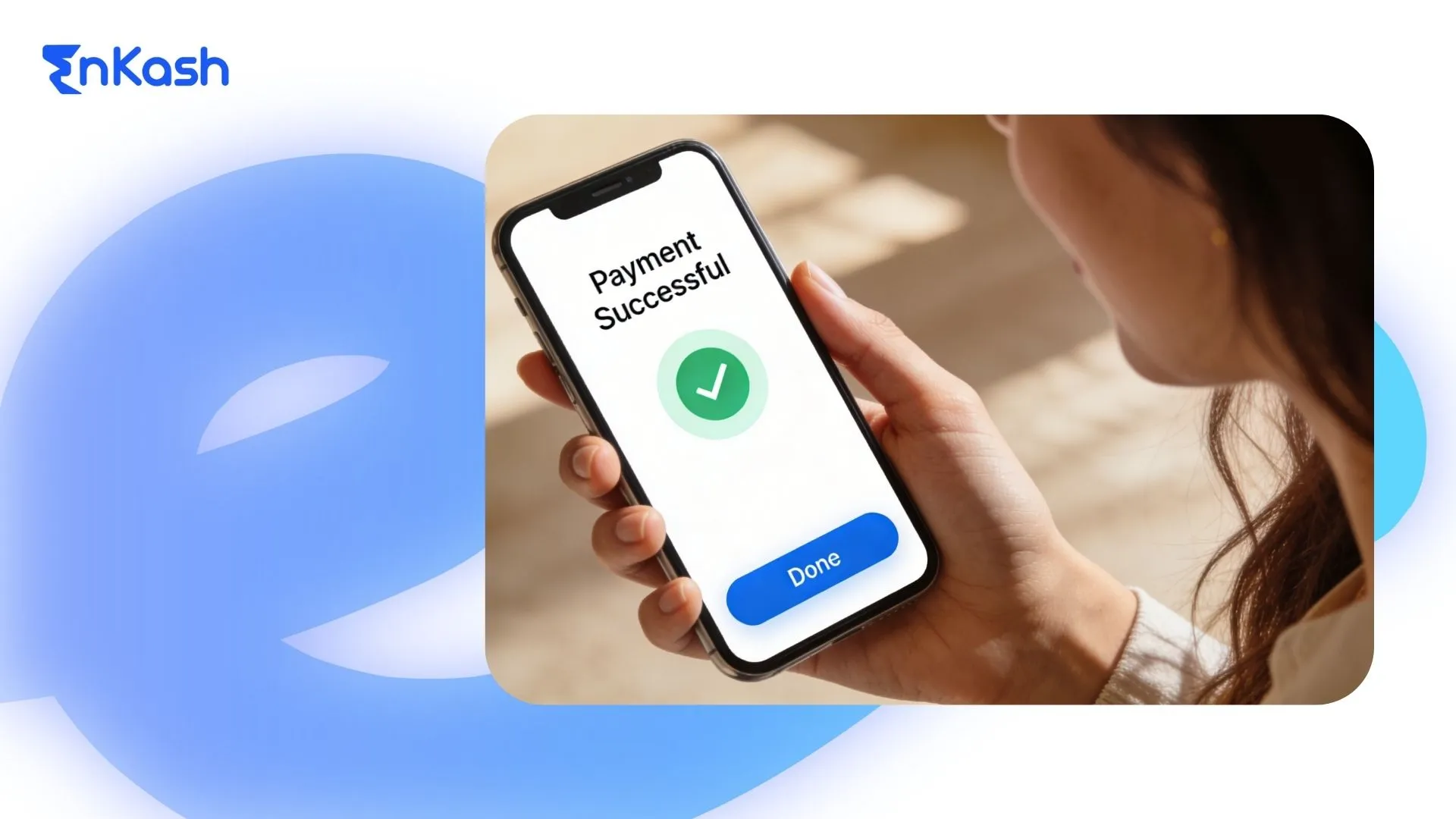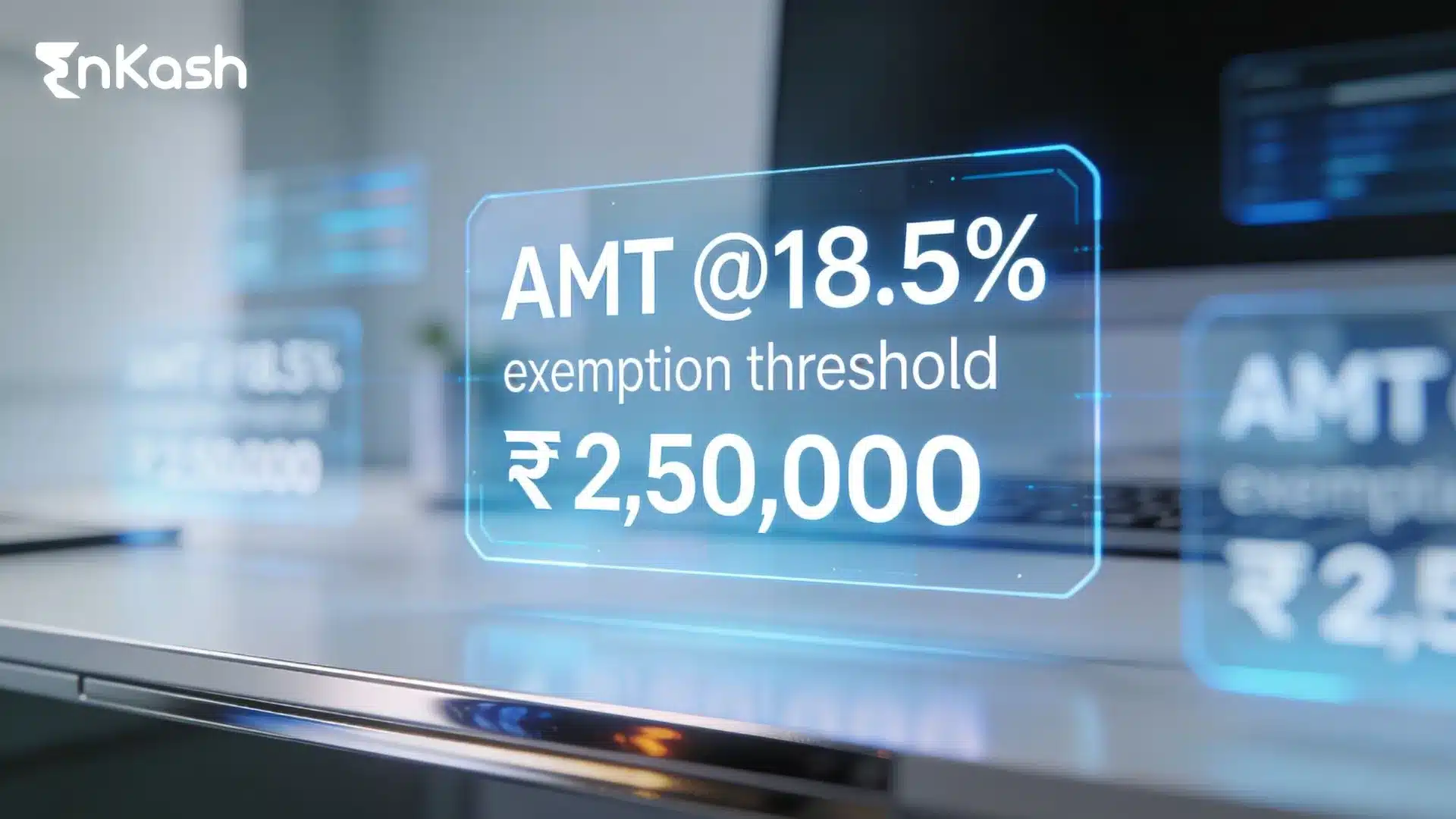Introduction
Retaining and motivating employees are key factors for corporate growth. One good way to do so is through an Employee Stock Option Plan (ESOP), which is a program that gives employees the option to buy shares of the company at a set price after a certain period of time. This practice fosters belonging and directly links employee performance to organizational success. ESOPs are even more beneficial for startups and companies that are looking to grow, as they provide financial rewards and, at the same time, encourage long-term loyalty. EnKash is one of the tools that can help companies manage ESOP administration, monitor allotments, and give both HR and finance teams a clear and organized process.
What is ESOP?
An Employee Stock Option Plan is a program for employees that grants them the right to buy company shares at a price that has been decided beforehand after a specified time of work in the company, usually referred to as the vesting period. ESOPs are financial instruments that help align employee interests with company growth; they can help significantly in preventing the departure of employees, giving them a feeling of ownership, and providing a strong tool for motivation in HRM. When employees have ownership in the company, they will more likely feel part of success, and thus they will actively support the business through their contributions to the company’s goals.
How ESOP Works
With an ESOP, the employees are given the right to buy a certain number of shares of the company at a predetermined price, which is called the exercise price. The options usually have a vesting schedule, meaning employees can exercise them only after completing a specific tenure or milestones, and possibly get a share of the increase in the company’s market value. When the vesting period is over, the employees may buy the shares and benefit from any rise in the company’s market value. This practice helps to attune the employees’ interests with the company’s growth and, at the same time, rewards them for their long-term loyalty.
Why Companies Issue ESOPs
Firms set up ESOPs to attract top talent, keep the pivotal staff, and align the individual worker’s performance with the growth of the organization. When the employees are offered shares, such companies create a sense of ownership, and the employees consider themselves to be a part of the company’s victories. This not only hypes up their productivity and interaction but also lures them to stay, thus keeping the attrition rates low. The ESOPs are especially precious for startups and companies in the growth phase because they grant a company the ability to implement significant monetary incentives without any immediate outflow of cash. Furthermore, the software tools like EnKash can provide help in cutting down the time and effort needed for ESOP management, thus supporting HR divisions in an efficient monitoring of allocations, exercising periods, and financial implications.
Types of ESOP
Employee Stock Option Plans (ESOPs) come in different types, each aimed at fulfilling different purposes of the business and the employees. Familiarity with the various types of plans facilitates a company in selecting the right one that will not only be an effective tool for talent motivation and retention but also for the performance of employees, being in harmony with the growth of the company.
Incentive Stock Options (ISO)
Incentive Stock Options (ISOs) are mainly granted to employees as an award for stellar performance or a long-term commitment. The tax advantages typically associated with ISOs make them an attractive financial option for employees. They also foster loyalty and a sense of ownership as the employees are directly benefited from the company’s growth while exercising options. ISOs are, in fact, quite common among startups and technology firms, where the issue of retaining the best talent is very crucial.
Non-Qualified Stock Options (NSO)
Non-Qualified Stock Options (NSOs) offer more flexibility than ISOs and can be given to employees, directors, and even consultants. From a tax perspective, NSOs are less advantageous than ISOs because they possess no tax benefits but still allow larger participation. Granting NSOs to non-employees, such as consultants, is a company strategy to enable the key stakeholders to align their interests with the company’s long-term success.
Restricted Stock Units (RSU)
Restricted Stock Units (RSUs) are about granting shares to employees after they meet some conditions, like completion of a vesting period or hitting some performance targets. RSUs not only work as a powerful tool for retention of talent, but they also make certain that the employees remain committed to the company’s objectives. The Employees gain ownership without paying upfront for shares, though the value is typically taxed when vested.
Employee Stock Purchase Plan (ESPP)
The Employee Stock Purchase Plan (ESPP), also known as an Employee Stock Purchase Plan, is an intriguing perk for employees as it lets employees buy company stock at a discounted rate via payroll deductions. ESPP is a scheme to increase the number of employees who own shares and thus be more engaged in the company. Making investing in the company practical, ESPPs not only raise and build up employees’ loyalty but also form a committed workforce that is constantly stimulating the firm’s growth.
ESOP Fund
In simple terms, an ESOP fund is a pool of company shares dedicated to employees exclusively under the Employee Stock Option Plan. Employees’ ownership is guaranteed in a way that is both structured and clear-cut, with no interruptions to the company’s financial operations. A separate fund allows the allocation, issuance, and exercise of stock options to be done in a very systematic manner, which is smooth for both employees and management. Also, an ESOP fund will define the total number of shares available for employees clearly, so that dilution of existing equity is avoided and fairness in distribution is ensured. For the employees, the ESOP fund is a very concrete way of getting financially richer with the company’s performance, as the value of these shares can increase along with the company’s performance. On the other hand, it is a tool that helps companies to attract the best talent, keep them engaged, and retain them for a long time. EnKash-like platforms can be very helpful in the process of tracking the ESOP fund, share allocations, and payroll and finance management system integration to ensure transparency.
ESOP Benefits
Have you ever thought that giving employees ownership in the company could lead to the development and motivation of people? ESOPs or Employee Stock Option Plans are the means to this end, and thus, generate a win-win situation for companies and their employees.
Employee Motivation and Retention
Motivation and retention are the most prominent benefits of ESOPs. Employees see themselves as contributors to the company’s success and, hence, are in turn responsible for its success. This feeling of ownership gives rise to long-term commitment and drives higher productivity as well. Moreover, because these employees are the ones who will be benefiting from the growth of the company, they are likely to be the last ones to leave the organization, and hence, turnover is minimized, and companies can cut on recruitment and training costs.
Interests are Aligned
ESOPs link the financial interests of the employees to those of the company’s performance. When the company does well, the employees’ stocks become more valuable and thus, they already have a reason to push the company towards its goals. This link develops an environment of unity and responsibility among the workers because their involvement is not just in doing their job but also in making the whole business a success.
Attracts Talent
The provision of ESOPs considerably enhances the allure of companies, primarily startups and SMEs, to the proficient workforce. Besides being paid well, the employees are usually attracted to the firms that grant them the right to own the company’s stock. If the companies make ESOPs a part of the salary deals, they can not only get the best people to work for them but also the ones who really want to be a part of the company’s development, and hence would work hard for the company’s benefit.
Financial Growth
The employees, through ESOPs, can claim a part of the company’s long-term success financially. The value of the employees’ stock holdings increases through the company’s growth, and along with that, they are to receive cash from the company periodically. Financial incentives act as morale boosters for high performers and also help them plan for the future, contributing to the situation being termed as ‘win-win,’ hence both the company and its employees will prosper.
Example of ESOP
Let’s consider a startup company planning to give 5% of its stock under an ESOP scheme as a method of reward and retention for its employees. One of the employees is given the right to buy 1,000 shares at a predetermined price of ₹100 per share, and he will have to wait four years before exercising this right. The entire time, the employee is working very hard to strengthen the company, confident that his productivity will not only benefit the business but also his potential income. After four years, when he can exercise his right, the company’s share price has reached ₹300, hence he gets ₹200,000 profit (1,000 × [300–100]). This not only means a huge cash gain but also an enhancement of his feeling of ownership and dedication to the long-term victory of the company. Such ESOPs motivate the employees to work in sync with the company’s growth, make them stay with the organization, and instill in everyone a sense of shared success.
Conclusion
ESOPs can be considered a financial strategy that enhances engagement and loyalty. They are really good tools for employee engagement, loyalty, and ownership within the company. When a company has an ESOP plan that is clear and well-structured, it can not only attract the best professionals but also keep the key ones, and tie the individual performance directly to the business growth. Employees become willing to give their best for the company’s success since they know that they have a part in its future. EnKash is a platform that simplifies ESOP management and tracking, thus enabling HR and finance departments to manage stock options in a way that supports transparency and grants employees the full benefit of their ownership rights.
FAQs
1. What is an ESOP in HRM?
An ESOP (Employee Stock Option Plan) gives employees the right to buy company shares at a fixed price, aligning their performance with business growth.
2. Are ESOPs only for senior employees?
No, not necessarily. By offering ESOPs, many companies, especially startups, are not only doing so for senior employees but for all their staff as a way of promoting inclusivity and shared ownership.
3. Can I leave the company and still keep my ESOP?
That depends on your ESOP policy. Some plans permit the employee to keep a part of his/already vested share, while unvested options cannot be availed of and may be forfeited.
4. How does ESOP motivate employees?
ESOP provides the employees with a feeling of power. When the company does well, employees get paid in the form of shares, and this, in turn, increases their commitment, performance, and loyalty.
5. Can startups offer ESOPs?
Certainly, ESOPs are especially common in startups as an affordable method of attracting and retaining talent.










